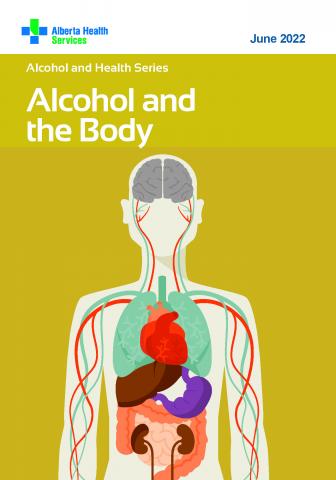Moderation starts with self-awareness. Our DrinkSense Calculator is a great a starting place for women to assess their drinking. Exceeding the recommended amounts can potentially lead to a wide range of short and long-term health and social problems, including alcohol dependence. For women, it is important to include non-drinking days during the week to avoid habitual drinking. It is also important not drink during pregnancy.
Drinking too much has many risks for women
- Injuries/violence
- Heart disease
- Cancer
- Sexually transmitted infections/diseases
- Fertility problems
- Unintended pregnancy
Why can’t I drink as much as the boys?
In general, women are more vulnerable to the effects of alcohol than men. On average, women weigh less than men and smaller people reach higher blood alcohol levels than larger people. Also, pound for pound, women have less water in their bodies than men do – even if a woman and a man of the same weight drink an equal amount of alcohol the woman’s blood alcohol concentration will be higher. Plus, women have less alcohol-metabolizing enzymes and digest alcohol differently than men.
"Are there differences in how alcohol affects men and women?"
Yes. Due to many physiological factors (such as less muscle mass) women experience the effects of alcohol more than men – even if both of them are of the same size.
The Risks and Realities
It’s important to understand the specific health risks of drinking for women.
Heavy alcohol use in women can lead to serious and in some cases unique health problems. Osteoporosis, breast cancer, heart disease, alcoholic hepatitis and reproductive problems are all associated with drinking by women. Mood altering drugs interact with alcohol to increase risk and women are twice as likely to be prescribed these medications.
Zero Alcohol. Zero Risk.
No matter what you’ve heard, there’s no safe amount of alcohol to drink during any stage of pregnancy. The good thing is Fetal Alcohol Spectrum Disorder is preventable. You can still have a good time with your friends. Enjoy virgin cocktails while you are out, they taste great and have none of the bad side-effects.
Risks for pregnant women and babies include:
- Miscarriage
- Stillbirth
- Premature birth
- Fetal alcohol spectrum disorders (FASDs)
- Sudden infant death syndrome (SIDS)

Drinking and breastfeeding don’t mix.
Women are also advised to avoid drinking alcohol during the months they are breastfeeding or to breastfeed or pump breast milk before drinking alcohol. Alcohol consumed by the mother passes into her breast milk and can affect the infant. For example, there is some evidence to suggest that children do not feed as well if breast milk contains alcohol and that alcohol in breast milk can impair a child’s development.
